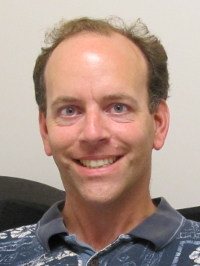NIMBioS Seminar Series
In conjunction with the interdisciplinary activities of the National Institute for Mathematical and Biological Synthesis (NIMBioS), a seminar series on topics in mathematical biology will be hosted at NIMBioS every other Tuesday at 3:30 p.m. (unless otherwise noted) in the Hallam Auditorium, Room 206, Claxton Building, 1122 Volunteer Blvd. Seminar speakers will focus on their research initiatives at the interface of mathematics and many areas of the life sciences. Light refreshments will be served in Room 205 beginning 30 minutes before each talk. Faculty and students from across the UT community are welcome to join us.
Time/Date: Tuesday, November 10, 2015, 3:30 p.m.*
Location:
Room 206, Claxton Building, 1122 Volunteer Blvd.
Speaker:
Dr. Richard Schugart, Mathematics, Western Kentucky Univ.; NIMBioS Sabbatical Fellow
Topic:
Can mathematics heal all wounds?
Abstract:
In this talk, I will present multiple wound-healing problems. The first problem uses optimal control theory to analyze the treatment of a bacterial infection in a wound with oxygen therapy. Two types of oxygen therapies (hyperbaric and topical) will be presented and preliminary results will be presented. The second problem uses patient data to formulate a mathematical model for proteolytic enzyme interactions and their effects on the healing response of a wound. Curve fitting of the model and sensitivity analyses will be presented with some interesting results when comparing different sensitivity analyses. Extensions of both problems will also be discussed.
*Join us for refreshments at 3 p.m.
Seminar Flyer (pdf)
For more information about this and other NIMBioS Seminars, visit /seminars.
NIMBioS
1122 Volunteer Blvd., Suite 106
University of Tennessee
Knoxville,
TN 37996-3410
PH: (865) 974-9334
FAX: (865) 974-9461
Contact NIMBioS



